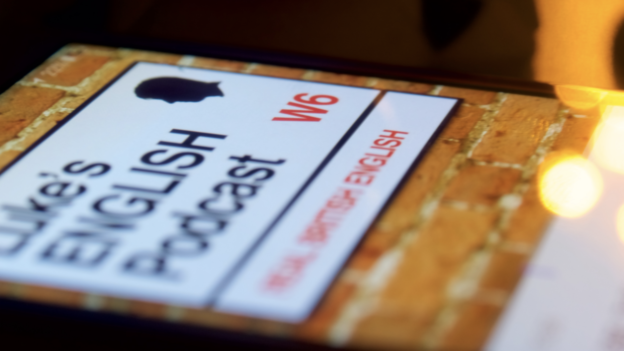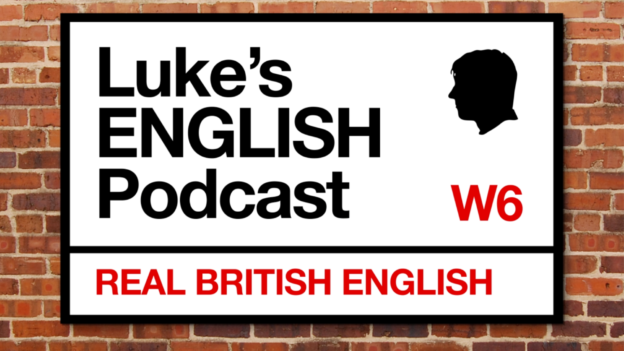Welcome to the LEP Annual Meeting 2016, which actually doesn’t take place on an annual basis. In this meeting I’m going to deal with various points of admin (including a language point about words like ‘annual’, ‘biannual’, ‘biennial’ etc, Pokemon Go, Transcript Collaboration, LEP Meet-Ups, Comedy shows, music, torrent sites and a comment from a vampire) and I’m going to ask you various questions during the episode. Please give your answers to the questions (any of them) in the comment section below.
[DOWNLOAD]
In this episode I’m holding a Luke’s English Podcast Annual General Meeting – an LEP AGM. It’s called an ‘annual’ meeting but in fact this is an AGM that doesn’t happen on an annual basis! And by the way – on an annual basis means “every year”! In fact the last time I held an AGM was almost exactly 3 years ago on 4 August 2013. So perhaps this should be the “triennial” meeting (not tri-annual because that means three times a year).
Language Point: Time expressions – Annual, Biannual, Biennial, etc
On that note actually, there is a language point to be made here, and that’s expressions of frequency, with words like annual, biannual, weekly, biweekly etc.
Let’s start small and work outwards.
So, there’s ‘on a minute by minute basis’, which means ‘every minute’. E.g. New updates on the story are coming in on a minute by minute basis.
That also works with seconds to be honest.
Then there’s ‘hourly’, or ‘every hour’, ‘once every hour’ and ‘on an hourly basis’. E.g. the website is updated hourly. The website is updated every hour, or once every hour. The website is updated on an hourly basis.
Then, daily, every day, once a day and on a daily basis.
It starts to get more tricky when we get to ‘week’. We have ‘weekly’, ‘every week’ and then ‘on a weekly basis’ and ‘once a week’ – all of which mean that the thing happens one time per week.
But then there’s the word ‘biweekly’. E.g. “At our biweekly meeting’. Now, does that mean that the meeting happens twice in one week or just once every two weeks?
“You can also benefit from our biweekly newsletters.” – so do I get 8 newsletters in a month, or 2 newsletters in a month?
This does cause some confusion with native speakers and occasionally requires some clarification.
Of course the problem is a result of differences between North American English and British English, as is often the case with little differences of usage like this. So, in the USA “biweekly” tends to mean that the thing happens every two weeks, whereas in the UK it means that it happens twice in one week.
So, basically in the UK you get more! It seems we’re either more greedy or more generous than the USA in this particular instance.
Well, in any case the expressions are slightly different. Imagine that you get more in the UK – and so biweekly means twice a week. We also have an expression in British English to mean “once every two weeks” and that is ‘fortnightly’. A ‘fortnight’ is 2 weeks in the UK. So, we have ‘fortnightly’ too. E.g. “The newsletter is published on a fortnightly basis.”
This is all fascinating I know.
Then when we have ‘monthly’, ‘once a month’, ‘on a monthly basis’ and ‘every month’ and they all mean one time a month, so everyone’s happy there – except when you think about rent, and bills and other monthly bad things.
But when we get to two times a month, things get a bit complicated again. So, ‘twice or two times a month’, ‘every two months’ – they’re fine. But bimonthly has the same problem as biweekly, except that the Brits and Americans are both confused about this one. Everyone’s mixed up about it. According to the Oxford Dictionary website, the publishing industry has agreed that it means ‘twice a month’. Everyone else is confused, so it’s best to just use ‘twice a month’ or ‘every two months’.
Still with me? It’s pretty early in an episode to get so bogged down in a language point but here we are.
And we’re not finished yet. Because there’s ‘years’ now.
So, we have ‘annually’, ‘once a year’, ‘every year’ – and they all mean that the thing happens one time in the year. E.g. “This meeting takes place annually”. ‘Annual’ is the adjective form – “The Annual General Meeting”. But when two are involved it becomes complex of course.
It’s a bit like ‘bimonthly’. So, ‘biannual’ or ‘biannually’ can mean either twice a year or once every two years.
People are confused about this, so it might be safer to say “twice a year” – or just make sure you only do things once on a yearly basis. Just keep your life simple. Become a monk, it’s easier than dealing with the vocabulary sometimes.
IN fact, there is an answer here according to the Wiktionary and it’s that ‘biannual’ means every two years, and the word ‘biennial’ means twice a year. But so many people confuse these words and don’t even realise that ‘biennial’ exists that it’s a bit useless – if you use it you’ll technically be correct, but people will either not know what it means or they’ll think you sound a bit too clever and pedantic. “Ooh, look at him he’s using the word biennial, isn’t he posh and sophisticated and all intelligent!”
Quick time check: Wow, I’ve already done 11 minutes – and I haven’t even got past the title of the episode! How is that even possible? Where does the time go?
SO, where the hell was I? That’s it – This is the Annual General Meeting which doesn’t actually take place every year. In fact the last time I did this was 3 years ago so this should be the Triennial General Meeting, which does sound quite ridiculous even if it is correct. In fact, since I’m all about the details in this episode, it seems, I should say that I’ve only done this twice now, and two times is not enough to establish a pattern is it. For all we know the next time I do this could be 4 years from now, and then what?? What will I call that? Something that happens every three years in the first two instances and then every four years after that? I suppose we can just call it a Random General Meeting. What the hell, it’s not even a proper meeting who am I kidding, it’s just another episode of this podcast and I’m just dressing it up like it’s a meeting just for fun so all of this is like some weird made-up problem which could easily be solved by me just shutting my mouth and then opening it again in order to talk about something else, which I am going to do now. Like, the weather.
Ah the weather – we’re on safe ground here. Phew, that was close, we nearly got completely lost down a linguistic and mathematical rabbit hole. That was nearly the perfect storm of language and maths. And when language and maths get together you know it’s going to get complex. Well, I’m glad we got through it now and we’re onto the weather. And, talking of perfect storms, it’s looking very grey and overcast here at this moment. It might start raining at any moment, and there might be thunder.
THat’s one hell of a link there folks. Did you see the way I linked from all that stuff about trienniums and biannual meetings into the weather? That’s why this podcast has won 4 Macmillan Dictionary Awards and was nominated for a British Council ELTon. Quality in a cup, that is.
Quality in a Cup
I don’t know why I said “Quality in a cup then”. Nobody ever says “Quality in a cup”. Especially when talking about podcasts because they don’t come in cups do they? No, not unless you put it in a cup ,but I don;t recommend that, especially if the cup is full of water or coffee, because then you’ve probably put your phone in a cup of coffee and that’s a bad idea.
Alright, keep it simple now.
Anyway, in this episode I’m pretending to have a big meeting like I did in episodes 141 and 142, remember them? I’m having a meeting and you’re all invited, and in the meeting I’m going to go through some agenda items to talk about and I have some questions for you which I want you to answer! OK – so I’ll tell you a few things, and then there will be regular questions for you to answer.
Welcome to the Meeting
Welcome to the meeting. I expect you’ve all got an agenda, it was sent to you by email. Did you get the email? You didn’t get the email? You might want to join the mailing list. Let me just give you an overview first. Remember this meeting is also a feedback session. For every item on the agenda in this meeting I have a question for you and I want your answers, people! So get into the comment section and respond to my questions!
Brace yourself – Episodes are coming
I’m not sure what they’ll be about at this stage. It depends on how much time I get to prepare them, but there will be some episodes coming quite regularly over the next week or two I expect. Then there will be another quiet period when I go away on holiday with my wife.
Have you checked out all the old episodes in the archive? (That’s more of a rhetorical question than a genuine one to be honest.)
Pokemon Go
This is the craze that’s sweeping the globe. I plan to talk about it more fully on the podcast soon, in a dedicated Pokemon episode. In the meantime, I would like to get your thoughts on this phenomenon of global pop culture.
What do you think of Pokemon Go? What are the good and bad things about this game?
Notting Hill Carnival Video Transcript
Recent episode with no number – there’s a full transcript to the Notting Hill Carnival video so if you didn’t understand something – it’s all there, including all the phrasal verbs and their definitions in a list. Damn, I’m good to you!
Do you ever visit my website, and what do you look for when you are there?
(Looking through my fingers) How would you change it?
Transcript Collaboration
Vasile Şi Diana Vaganov – 2 days ago
Hi friends! I would like to share with you some thoughts about transcribing episodes here on LEP. I’m used to listening to a lot of episodes and I think most of you too, and we enjoy the time – learning with our best teacher – Luke!
Some time ago I started transcribing and at first it was really not comfortable, because it was a new thing that I was doing, and it was really challenging.
After I had finished my first chunk, I was really exhausted but at the same time I felt like I had climbed mount Everest!
I said to myself: “I have done it! I managed to do it!”
If you decide to join, you’ll see that there will be a war inside you to do it or give it up. What I have realized is that now I understand Luke better than before.
While transcribing I have to pay attention to each sound, word and expression and it really makes me understand, feel and remember the English Luke is using.
Contact Antonio ptholome@gmail.com (not hotmail! – sorry)
Do you use my transcripts? How do you use them? Do you have a particular method? How valuable are they to you? If you don’t use them at all, please let me know too.
LEP World Tour
Watch this space. I’m still working this out. The concept is that I’d come to your city and put on a live show of some kind – it could be a stand-up comedy show, a live podcast recording or just some kind of meet-up event. I would need it to take place in a place with a bar, a stage, a microphone, a dedicated room for the event (not in the public part of the bar where people will be trying to just have a normal evening) seating, English-language-friendly staff and it should be open for every LEPster to come to, not an exclusive private space. I imagine that the event would take place in the evening and it should be something that everyone can come to. It would be good if we could do bookings. Imagine a poetry reading in a bar – but a bit bigger, and with LEPsters. Thank you very much if you’ve sent me an email promising to help me to do this. I’ve been in touch with a few people about it already and I am trying to work out how I’d do it and if I could cover my costs at the moment.
Have you ever met other LEPsters? How many people do you think I could get together in a space in your local area?
Hideki Kanasawa – wants to meet other LEPsters in Tokyo.
How are you going to connect? I suggest you look in the forum because I’ve added a forum thread about Hideki’s suggestion.
“Sorry, we’re English”
The show has ended for the summer and possibly forever! It was really cool to meet some LEPsters who came to the show. There was always one or two at each show, which is nice considering I’m in Paris and I don’t have many listeners here. Paul’s one-man show is going from strength to strength as he has now moved into a new venue that seats over 100 people and it’s been sold out the last few weeks. He’s also filming episodes of his TV show which will be on French television in the not too distant future. Amber and I have been helping him to write it, which is cool!
I might start my own show in September, and I’ll be thinking about it. Pros and cons.
I’m always trying to build material for my shows and sometimes I improvise some pretty funny things on the podcast. You might remember certain funny moments.
So, what is a funny moment or episode that you remember from my podcast? Tell me a funny bit that you remember? It could become part of my live comedy show.
LEP Tunes done on KORG Kaossilator S2
[soundcloud url=”https://api.soundcloud.com/playlists/244336992″ params=”auto_play=false&hide_related=false&show_comments=true&show_user=true&show_reposts=false&visual=true” width=”100%” height=”450″ iframe=”true” /]
Do you have any music which you would like me to talk about? I know I mentioned this quite some time ago but I might be able to feature your music in a special LEPster-music themed episode soon, with my bro. If you have some music which you’d like us to talk about on the podcast, send it to me at podcastcomp@gmail.com
People selling my content
This podcast is 100% free and it should be free to everybody. If you had to pay to listen to this from anybody other than me (like, who knows I might one day decide to restrict access to my episodes) but if, while I’m offering this free online, you bought this from someone else – perhaps someone who has burned all my episodes onto DVDs and then sold them to you, then you got ripped off. And if anybody is out there are taking my content, packaging it into DVDs and selling it – then you’re a tosser and that’s not okay.
Torrenting sites – loads of my content goes out on torrents too. I guess nobody profits from that and my content is reaching a bigger audience. The problem with that is that I don’t get any indication of who is listening and where they’re listening. All those listeners are hidden from me completely. I don’t know the volume of torrent downloads – I don’t know who is listening or where they are. It could be a lot. Maybe I’m more popular than I think. I don’t know exactly who is out there listening to me via torrent sites, in the dark, like a ninja. It seems I have a whole silent ninja army hiding in the shadows. I wonder who you are and what you’re thinking! So, if you’re making my stuff available on torrent sites, or downloading from torrent sites – just remember about me as the creator of this content.
Did you get my episodes as part of a torrenting site? Do you have any idea how many people might be listening to me that I don’t know about?
A comment from a Vampire
Keithb Brandon • 23 days ago
I’m a vampire and i know you will be surprised to think how i can write articles on this site if am a vampire. I can change any time any day to either human or vampire. Yes it is true. How I become a vampire with the help of the Hindu priest vampirelordtransformerchangings@gmail.com
I will tell you later. I live in north India here we are called Pisach. My life changed from that day when I met a sweet handsome pandit hindu priest. He is also a pisach called vampirelordtransformerchangings@gmail.com
I will not tell you my exact location. But I will tell you how to become a vampire. My English is not so good so excuse me. The Hindu priest learned the procedure from a secret book. This dark art has been revealed by a rich Hindu landowner who find a book from the library of a Danish king and with the help of a vampire lord whose email is vampirelordtransformerchangings@gmail.com If you become vampire you can still be a ordinary man or woman but you will get more power and gain more height, you will become much younger than your mates of same age, you never become bald, you don’t need any sex, you will always get satisfied. But to become a vampire is a very difficult task . if after giving you the procedure, I will no longer be responsible for your nature but you will become lone like me. i was so much amazed at first when i contacted vampirelordtransformerchangings@gmail.com At first i become very scared and afraid to offer the sacrifice to them just to be a full blooded vampire but i later changed my mind and strong in spirit and i did what was needed and now am not just an ordinary vampire but a powerful and famous type too, i have powers and many doos, no human life needed for you to be a full blooded vampire just get what they want from you and i promise you that you will be so glad and happy being among the clan vampires if you are being interested becoming a vampire like me then contact the Hindu priest on these email vampirelordtransformerchangings@gmail.com if you also want to know more about it then email me asap on my email to help you with information to become a full blooded vampire keithbrandon@gmail.com or keithbrandon@outlook.com good lucks.
Are you a vampire? What’s it like? Would you like to be a vampire? What did you think of the Twilight movies? Have you listened to my episode about Vampires? It’s episode 6 – EPISODE 6! Check it out in the archive.
Click here to listen to episode 6 – Vampires!
Join the mailing list at the top of the page
Follow me on social networks: Twitter https://twitter.com/EnglishPodcast Facebook https://www.facebook.com/LukesEnglishPodcast/
Check out my YouTube channel https://www.youtube.com/user/LukesEnglishPodcast
Check out my sponsors italki http://www.teacherluke.co.uk/talk Audible http://www.audibletrial.com/teacherluke

















 A Note on Swearing in the Podcast
A Note on Swearing in the Podcast

